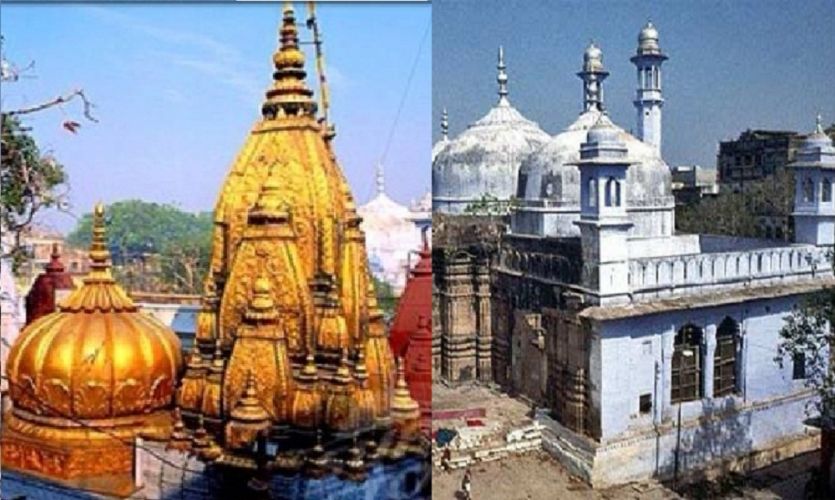Varanasi, 5 Aug: The Archaeological Survey of India (ASI) continued its investigation of the Gyanvapi Mosque in Varanasi on Saturday to ascertain whether it was built on top of a Hindu shrine.
A trident (trishul), swastika, bell, and flower-like symbol etched on the walls and pillars of the Gyanvapi complex were videotaped and photographed by the top archaeology organisation. The first day was spent surveying the symbols on the walls, domes, and pillars.
The building style and age of each design were noted, and the survey included the formations encarved on the contested structure’s domes and pillars. The district authorities deployed a considerable number of security officers to guarantee law and order in the vicinity of the Gyanvapi complex.
The survey took roughly seven hours on the first day, during which ASI recorded layout and photos of structures. Dial test indicators were set on all four corners of the Gyanvapi complex, and the depth and height of various complex elements were measured.
When the ASI team was united with expert teams from IIT, a total of 41 participants formed a team that was divided into four teams to begin this survey.
On Saturday, the survey resumed for the second day in a row, with the Muslim side stating they will participate.
The survey began at 9 a.m. today and will run until 12:30 p.m. It will restart at 2.30 p.m. and will continue until 5 p.m.
“The ASI did the videography yesterday. There is a potential that the survey of underground places (tehkhana) will be conducted today. Various symbols may be seen on the building. All the idols that were submerged inside may be discovered using Ground Penetrating Radar (GPR),” one of the petitioners was reported as stating.
“The survey kicked off at 9 a.m. on Saturday. Yesterday was a great day for us to celebrate. The survey will now continue. The Muslim side will work with us today,” she stated. A Varanasi court on Friday granted the ASI an extension of four weeks to complete the scientific assessment on the Gyanvapi mosque, which lies close to the Kashi Vishwanath temple.
The Supreme Court ruled on Friday that the country’s top archaeological organisation should conduct a “non-invasive” study of the Gyanvapi mosque. In the Allahabad High Court, the mosque committee contested the district court’s survey ruling.
The high court denied the mosque committee’s motion to stay the district court’s judgement for the ASI to conduct the survey to ascertain if the mosque was constructed on a pre-existing temple.
The Gyanvapi mosque made news after a group of ladies petitioned a lower court in Varanasi for permission to worship a Hindu god in the mosque compound on all days, alleging a temple existed previously.
Based on this petition, the court ordered a video assessment of the facility in 2022. During the survey, a structure that the petitioners alleged a ‘shivling’ was identified.
The mosque management committee, on the other hand, stated that the structure was part of a fountain in the ‘wazukhana,’ which is a water-filled area where Muslims wash their hands and feet before praying. Given the gravity of the situation, the Supreme Court ordered that the alleged ‘shivling’ area be sealed.
The Varanasi district Court denied a petition by the mosque committee in September 2022, arguing that the women’s desire to worship Hindu deities inside the complex premises was unconstitutional.





